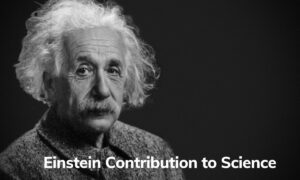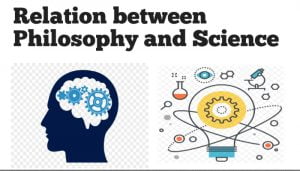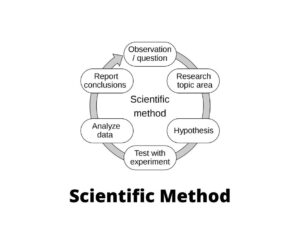Nature of Science:
During the 15th and 16th centuries, scientific researchers in the realm of science started the vogue of teaching science, in the 17th-century science was taught to children in place of mere theoretical and academic learning to achieve effective, complete and well adjustive living in the ever-changing circumstances and situations of society.
One to industrial Revolution of 18th century and under the impact of newer scientific inventions and researchers in technology, human life-changing to new patterns of beliefs and behaviours as individual and social beings.
The modern age is the age of science. Today Scientific inventions and researchers are being made with such a fast speed that their knowledge needs complete knowledge of science. Thus science has become an integral part of human life. All our means of communications, radio, television, food craters, cloths and medicines depends on the development of science
Meaning of Science
The term science has been derived from the Latin word “Scientia” which means knowledge. Science is viewed by laymen as a body of scientific information. It is a method by which hypotheses are tested. Science is a systematic storehouse of knowledge gained after generalizing and inter-relating the barrier of isolated facts.
Definition of science by different Individuals
According to Green-“ Science is a way of investigation”
According to John Woodbourn and E.O Obourn-“Science is the human endeavour that seeks to describe with ever-increasing accuracy, the events and circumstances that occur or exist within our natural environment
According to Albert Einstein-“Science searches for relations that are thought to exist independently of the searching individuals
Also read:
Nature of Science (Characteristics)
1. Science as body of knowledge
Science has been characterized as a body of knowledge obtained by scientists. This body of knowledge includes facts, concepts, theories that are subject to error and change.
Various types of scientific knowledge exist in the form of
- Facts
- Concepts, principles and laws
- Hypothesis and theories
2. Science is a dynamic body, not static
Science is a dynamic body as it is always in search of truth and scientific truth can never be taken as absolutely and permanently true. Scientific information is constantly being re-arranged and re-oriented in the light of the latest developments.
3. Science is a process as well as product
Science as a process covers all the methods, all the ways facts are established. The process involves the following activities
- Steps to accomplish a task
- Ways of doing work
- Planning various stages of an activity
- Establishing systematic steps for gathering and retaining information
In science, the ways of gathering data or information, thinking, measuring, solving problems or in other words ways of learning science are called “Process of Science”.
The process of science gives rise to a number of products of knowledge like facts, concepts, theories, laws and generalization. These products are of great utility to human beings. The relationship between various components of products are shown in the diagram
4. Scientific knowledge is durable
Although scientist rejects the idea of attaining absolute truth and accept some uncertainty as part of nature, most scientific knowledge is durable. Continuity and stability are as characteristics of science as change is and confidence is as prevalent as tentativeness.
5. Science is based on scientific methodology
The very nature of science involves a particularly methodical approach towards it. These methods are observation and enquiry.
6. Scientific knowledge is based on inquiry
The exchange of techniques, information and concepts goes on all the time among scientists and there is a common understanding among them about what constitutes an investigation that is scientifically valid.
7. Scientific knowledge based on evidence
The validity of scientific claims is settled by referring to the observation of phenomena. Hence, Scientists concentrate on getting “ Accurate data”, such evidence is obtained by observation and measurements taken in situations that range from natural settings to completely artificial ones.
8. Science is a blend of logic and imagination
Although all sorts of imagination and thought may be used in coming up with hypotheses and theories, sooner or later scientific arguments must conform to the principle of logical reasoning
9. Science explains and also predicts
It is not enough for a scientific theory to fit only the observations that are already known but theories also should fit additional observation that was not used in formulating the theories in the first place. i.e theories should have predictive power
10. Science is an enterprise
Science as an enterprise has individual, social and institutional dimensions. Other than that there are an infinite number of characteristics of science as
- Scientific knowledge is holistic and humanistic
- Science is based on values of objectively rationality and neutrality
- Science is universal i.e facts and concepts, generalization, theories and laws have universal acceptance and application
- Science knowledge is based on assumption accumulated over years of experience.



